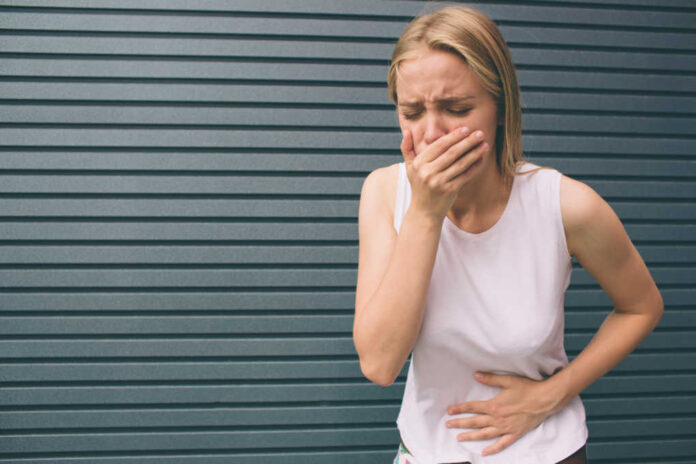
Foodborne illnesses affect 48 million Americans each year, though most cases do not result in hospitalization, and life-threatening cases are very rare.
Pathogens can enter the food supply at any point from farm to table and often do so without any noticeable change to the appearance, taste, or smell of food.
The high heat of cooking usually kills harmful bacteria, but sometimes food is not cooked to the right temperature for long enough, allowing the germs to survive and cause illness. They might also be found in uncooked foods like salads and fresh fruit that have not been washed properly.
Onset of Symptoms
Each toxin has a different incubation period. Sometimes it can be less than an hour after eating that you start to feel ill. Other times, symptoms may be delayed by days or weeks.
Different toxins may also present with a slightly different set of symptoms.
The most common germs that cause food poisoning include:
- Norovirus: 12-48 hours – nausea, vomiting, watery non-bloody diarrhea, dehydration
- Salmonella: 1-3 days – fever, abdominal cramps, diarrhea, vomiting, headache
- Clostridium perfringens: 2-36 hours – abdominal cramps, diarrhea, putrefactive diarrhea, sometimes nausea and vomiting
- Campylobacter: 1-10 days – diarrhea (often bloody), abdominal pain, nausea, vomiting, malaise, fever
- Staphylococcus aureus: 1-7 hours – nausea, vomiting, retching, diarrhea, abdominal pain, prostration
How Food Poisoning is Treated
Most cases of food poisoning do not require any medical intervention.
See your doctor or go to an emergency room if you are experiencing severe symptoms such as:
- Bloody diarrhea
- High fever (102°F or above)
- Frequent vomiting prevents you from keeping liquids down
- Signs of dehydration (little or no urination, a parched mouth and throat, or feeling dizzy when standing up)
- Diarrhea that lasts more than three days
Over-the-counter medications like Pepto-Bismol could manage your diarrhea and nausea. However, this may prolong the healing process. Vomiting and diarrhea are your body’s way of getting rid of the toxins, so it’s often better to let your body expel its waste.
In some cases, especially for higher-risk patients who are older, immunocompromised, or pregnant, a doctor may use IV fluids and antibiotic medications to restore hydration and clear out the infection quickly.
Dehydration is the most common complication of food poisoning. Drink small sips of clear liquids such as water, sports drinks, or clear broths. Avoid sugary drinks, caffeinated beverages, and alcohol which will irritate your stomach and worsen dehydration.
Preventing Food Poisoning
The most effective way to prevent foodborne illness is to practice safe food handling and cooking techniques.
Cook all your food to the proper internal temperature as measured with a food thermometer.
Wash your hands thoroughly with soap and water, especially before you prepare food, use the restroom, and handle raw meat.
Always wash all fruits and vegetables thoroughly.
Avoid cross-contamination by keeping raw meat, poultry, and seafood away from other food. Use separate cutting boards and knives for these items, and wash them thoroughly with soap and water after each use.
Do not handle or prepare food for others if you are sick.






















